- Philip Norman’s “letter” to Paul - May 2, 2016
- The Jets and The Beatles - April 25, 2016
- Lennon and McCartney On The Tonight Show, 1968 - April 20, 2016
Get Back: The Beatles’ Let It Be Disaster (Doug Sulpy and Ray Schweighardt, 1994)
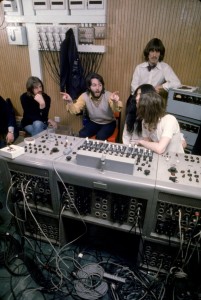
In January, 1969, The Beatles began a project that ostensibly marked their return to concert performances, something they hadn’t done in over three years. The project was the brainchild of Paul McCartney, who hoped that performing before a live audience would restore the group’s fading morale and creative ennui. Michael Lindsay-Hogg was hired to direct a television documentary which was slated to accompany the concert’s live television broadcast.
Alas, the concert never happened, the band broke up, and out of the rubble came the feature film, Let It Be. The film became a de facto statement about the break-up, even though much of what happened during that terrible month was left on Lindsay-Hogg’s cutting room floor. Not satisfied with the film version of the breakup, Sulpy and Schweighardt reviewed the unused footage with the hopes of gaining further insights. The result is Get Back: The Beatles’ Let It Be Disaster, an even-handed and often sympathetic account of the final days of the band. Their account debunks the decades-old myth of Paul as Band-Destroyer, and supports the view that— far from being victims of Paul’s relentless perfectionism— the other three were, in varying degrees, saboteurs of Paul’s genuine attempt to save their collective interests. And, in spite of her protestations, their account also demonstrates how Yoko’s presence and constant meddling had a scorched earth effect upon the group and everyone associated with them.
Paul as Reluctant Leader
From the outset, it was clear to the authors that, far from pursuing leadership, Paul was frustrated and concerned about the leadership role being thrust upon him. John’s uncommunicativeness, in particular, impeded the band’s ability to move forward on creative ideas and resolve creative disputes.
The famous “fight” between Paul and George, depicted in the movie and overblown by Beatle pundits ever since, exemplifies this dynamic:
Paul, as he had several times earlier, expresses his desire that they work out the structure of the song before working on specifics. George disagrees, and believes they should just play until things come together. The conflict revolves around the different working methods of George, Paul, and John. John is withdrawn and uncommunicative…even for his own compositions. This leaves Paul…as the only Beatle able to propel the rehearsals forward. This isn’t a role he wants to assume. He bluntly states he wants to encourage them, but worries that this will mean taking a leadership role in the group, which would inevitably lead to ruffled egos. John admits his non-participation but says he has no suggestions to make. Paul, still trying to mend fences, stresses… there’s nothing personal against George.
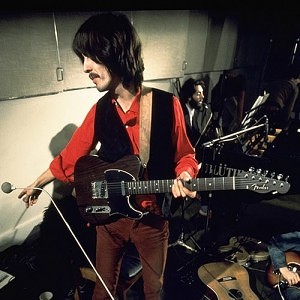
George, briefly between seethes
Drugs And The Yoko Factor
The extent of John’s incapacitation, and the devastating effect it had upon the group, cannot be overstated. His song output was at an all-time low, his guitar-playing was substandard, and he could not remember simple riffs or the lyrics to his own songs (a problem he had at the best of times, but almost reeking of a drug-induced memory impairment now). The band’s reaction to this was interesting: while Paul vacillated between accommodation and careful confrontation, Ringo ignored the problem altogether while George seethed. George, in particular, was enraged by Yoko’s unsolicited commentary during rehearsals and preeminence in business matters. Indeed, it was because of Yoko’s interference in a business meeting, and not some altercation with Paul, that prompted George to quit. As Sulpy and Schweighardt observe,
if there had been some conflict between George and Paul, one would expect to find some evidence of ill-will between the two. In fact, there are no negative feelings expressed, or even implied. It seems that George had expressed his view [in the business meeting] that the future of The Beatles was a matter that should be discussed privately between the four members of the group. This would have implicitly excluded Yoko, but rather than having to choose between her and The Beatles, John appears to have pretended not to understand George’s request. This childish behaviour angered George, who then walked out on the meeting.
While Yoko didn’t ipso facto cause the break up, her interference was the proverbial straw that broke the band’s collective back. Contrary to her revisionist claims that John “forced” her to speak and act for him, Sulpy and Schweighardt suggest that it was clear from even a cursory examination of the tapes that Yoko was a willing participant:
After several aborted tries [to discuss the live show], Paul, George, Yoko, and Michael discuss the theoretical uses of an audience. John is present but silent. While Michael expresses the view that the band needs an audience [in response to Yoko’s suggestion that they play to empty seats], Yoko quite comfortably talks down to him. Her tone clearly indicates that, in her own mind, at least, she’s as important as any of The Beatles. Although John is present, he contributes nothing to the conversation, offering as proxy Yoko’s generally unorthodox and self-aggrandizing observations.
Later on, in a private (but taped) conversation with his wife Linda, Michael Lindsay-Hogg, and Neil Aspinall, Paul correctly observed that the problem isn’t with Yoko per se, but with John’s acquiesce to her and her eagerness to act in John’s stead. The rest of The Beatles, together with Linda, Neil, and Michael, discussed the issue thusly:
Linda, Neil, and Paul all see Yoko working her will through John, but don’t wish to confront him about it until they have no doubt as to what’s going on. Not only do [Paul and Neil] see Yoko talking for John, but they feel that when they talk to John, they’re really talking to Yoko, since John’s only saying what Yoko wants him to say. Paul is faced with a dilemma. If he confronts John, he’s sure that John will quit The Beatles and devote himself to Yoko (which, of course, is what ultimately occurs) but he sees the group disintegrating anyway, both because of the vacuum left by John’s creative withdrawal and George’s unwillingness to tolerate John’s behaviour.
Paul recognized that the frustration everyone was feeling was almost as damaging and disruptive as the behaviours which provoked it. He attempted to diffuse the situation by minimizing John’s actions and suggesting tolerance:
[Paul] goes out of his way to explain how [Yoko] didn’t interfere when he and John were struggling with the lyrics for I Will the previous year. He then goes a step further and [claims] that when the two get really serious about something, John won’t let allow Yoko to interfere (if this is true, it’s not supported by the available tapes). He admits that John and Yoko go too far in their relationship, but tolerates it because it’s characteristic of John to go overboard on things. He then explains it’s not really their business to tell John that Yoko can’t attend their business meetings and that all they can really do is express their displeasure to him.
Paul’s defense of John and Yoko was bolstered by his view that the Lennon/McCartney partnership was waning even prior to Yoko’s appearance, due to the fact that
they no longer shared the physical closeness that they had in the early years. [Paul] believes they still have the ability to play well, and that the real problem is their lack of communication. Paul then reveals that the underlying motive behind [the project] was to force the group into the discipline of a 9-5 situation, claiming that even if it’s a grind at times, at least they’d be able to reap the rewards of their work.
It’s interesting to note that while there was much discussion about John and Yoko’s co-dependence and the effect that had upon the band, there was no similar discussion about John’s heroin use. On at least one occasion, Yoko asked John when Mal was going to purchase more heroin for them. Although it was asked cryptically, it occurred in front of the cameras and everyone else in the room, and there could be no doubt as to what the conversation was about.
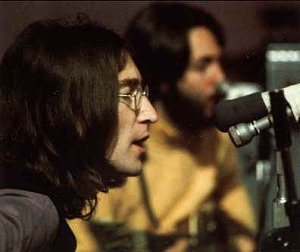
“No comment.”
Can The Beatles Be Saved?
Regardless of Paul’s intention to inspire the band by a 9-5 work commitment, interpersonal tensions were exacerbated by the nebulous nature of the project itself. Although the band was meeting regularly for rehearsals and a concert date had been selected, they still hadn’t come to an agreement about the actual venue. (This was hardly surprising, considering that one idea was to hire a cruise ship, bring several hundred fans aboard, and have the concert on the way to India.) One can hardly imagine such a cock-eyed scenario occurring if Brian Epstein was still at the helm, and speaks to how desperately they needed management oversight–something each Beatle recognized.
This notwithstanding, Paul seemed to be the only band member who clearly understood what was at stake if they didn’t get their act together and was understandably losing patience:
[Paul’s request that they clear the air] irritates George, who comments that past attempts to do this resulted in compromises no-one wanted to make. Paul answers by saying that if a live show turns out to be a compromise of that type then they should just give up and let The Beatles die. Almost enthusiastically, George agrees. Amazed and baffled at the thought of breaking up The Beatles, and cognizant of the artistic and financial havoc such an act would cause, [Paul] incredulously reminds the others how stupid it would be for them to break up. Paul …complains that John talks condescendingly to them and then observes he doesn’t talk at all. The nearly hour long series of discussions has ended with nothing being resolved in terms of the show or the group’s future.
One can feel for Paul and his frustration. In spite of all the tension and creative impasses, this was a band that clearly still cared for one another and had the ability to make good music. Sulpy and Schweighardt note that frustrations with the new material inevitably lead to jamming the old stuff, mostly from the teenage Lennon-McCartney songbook. This prompted George to suggest that they perform the old material rather than new material, which may be more interesting to their fans anyway. Yoko recoiled at the idea, and seemed “quite obstinately against the idea of The Beatles returning to their past, [presenting] the somewhat confused argument that people would rather see Richard Burton shaving than returning to his roots on the stage.” George’s suggestion ultimately never took root, and discussions about the concert continued without resolution.
And In The End…
Sulpy and Schweighardt’s thoughtful study of The Beatles’ dissolution makes for compelling reading, and raises as many questions as it answers. Why, for example, do George and Ringo side with John in his ostracism of Paul, after living through two frustrating years of Yoko- and drug-inspired craziness and when John’s decision-making capacities are clearly impaired? How is it that none of The Beatles understood how serious John’s drug-taking had become? Why didn’t the band go on hiatus rather than attempt a project which was so clearly destined to fail? Sulpy and Schweighardt don’t offer explanations or provide any answers. Perhaps they left that for us as Beatle fans, to figure out.

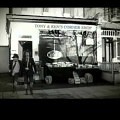
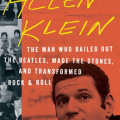
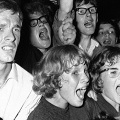
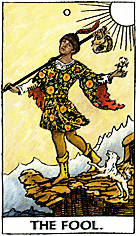
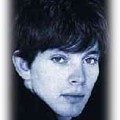
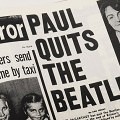
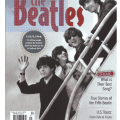
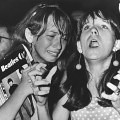
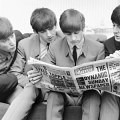
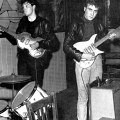
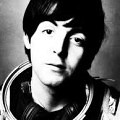
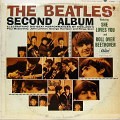
George Harrison had been seething since 1964 over a constellation of issues, take your pick—John, Paul, and George Martin’s dismissive attitude toward Harrisongs; John and Paul’s caste-within-a-caste within The Beatles; John for treating George more like an acolyte than an equal; Paul for seizing the lead guitar role whenever George couldn’t or wouldn’t play to Paul’s specifications; other Beatles not taking spirituality as seriously as he did; the inconveniences caused by fame; or impositions created by the adulation of Beatle people (cripples, Mal!)
If you want my opinion, the last straw was when Yoko ate the digestive biscuit left on George’s amplifier.
“As we were listening, I noticed that something down in the studio had caught George Harrison’s attention. After a moment or two he began staring bug-eyed out the control room window… Yoko had gotten out of bed and was slowly padding across the studio floor, finally coming to a stop at Harrison’s Leslie cabinet, which had a packet of McVitie’s Digestive Biscuits on top. Idly, she began opening the packet and delicately removed a single biscuit. Just as the morsel reached her mouth, Harrison could contain himself no longer. ‘THAT BITCH!’ Everyone looked aghast, but we all knew exactly who he was talking about. ‘She’s just taken one of my biscuits!’ Harrison explained. He wasn’t the least bit sheepish, either. As far as he was concerned, those biscuits were his property and no one was allowed to go near them. Lennon began shouting back at him, but there was little he could say to defend his wife (who was happily munching away in the studio), because he shared exactly the same attitude towards food.”
——the Beatles’ engineer Geoff Emerick, in his book Here, There and Everywhere
(h/t Harrisonstories)
OMG! Michael, I literally thought you were writing satire, and was laughing out loud as I was reading that account. It was even funnier to see that Geoff Emerick actually published it! HA!
“Paul answers by saying that if a live show turns out to be a compromise of that type then they should just give up and let The Beatles die. Almost enthusiastically, George agrees. Amazed and baffled at the thought of breaking up The Beatles, and cognizant of the artistic and financial havoc such an act would cause, [Paul] incredulously reminds the others how stupid it would be for them to break up.”
John As Band-Destroyer: When George tells the others, “See you round the clubs,” and leaves Twickenham, John assures Paul, “We can get Clapton to replace George.” WHAAAAT?
It got worse, J.R. John suggested that Billy Preston join the group as a permanent member. Paul was incredulous, but dealt with it by joking that they were having a hard enough time with just the four of them. John was trying EVERYTHING AND ANYTHING to discombobulate Paul and the band’s homeostasis. I even think his ‘we can all be mindreaders’ is further evidence of that.
Excellent review, Karen. I’ve also read this book, and some of the actual transcripts; they’re grim, but fascinating reading. You did a great job of highlighting all the key points.
—
What interests me the most is how blatantly the transcripts and Sulpy’s interpretations crush the “Paul was the only source of acrimony” aspect of the “Lennon Remembers” narrative. In the Klein 1971 Playboy interview posted elsewhere, Klein emphasizes George and John’s closeness and happiness, implying that all the conflicts were caused by Paul, and George and John both testified to that during the actual trial. These tapes seriously undermine that, just as they emphasize how disruptive Yoko’s presence was for everyone involved.
—
With these tapes indicating that the George/John relationship was, at this point, worse than John and Paul’s, it makes me wonder if part of the reason George sided with John, over Paul, on the Klein issue was to work his way back into John’s good graces. George had been the most overtly vocal anti-Yoko voice, which these tapes prove, and John did not appreciate it — “Eric Clapton,” anyone? Agreeing with John regarding Klein puts Paul on the outs, rather than George. And kudos to both the authors and you for emphasizing the damage done by John and Yoko’s heroin use. That topic has not received anywhere near the attention it deserves in the analysis of the breakup.
Thank you Ruth. I had the same question regarding George’s about-face. While he certainly bumped heads with Paul regarding working styles, the overwhelming focus of his wrath was JohnandYoko. It’s a head-shaker, that’s for sure.
It is baffling, especially since you have George, in Anthology, saying that it was around 1970 that he really began to understand how “screwed up” John was. George’s willingness to continue to follow not only a heroin addicted, but also a “screwed up” John’s lead seems particularly ironic, especially coming from the Beatle who urged others to think for themselves.
I think that aspect of the Beatles’ implosion baffles me almost as much as John’s behaviour toward Paul. Even more interesting (and confounding) is that George persisted in issuing less-than-flattering commentary about Paul in interviews during a time when clearly he knew that Klein had shafted them:
.
This is just my humble opinion, and is in no way scientific (i.e. I’m not going to back this up with links to concrete examples), but I’ve always felt that George worshipped John and resented John & Paul’s partnership (professional and personal) all along. Again…. not saying Paul is blameless (I’m sure George had some legit complaints about him), or that John is to blame for all the band’s problems. But it sure looks like George was infinitely more forgiving of John’s dickery. People like to go on about how badly John treated Paul, but John treated George like dog shit. It’s NUTS how rude John is (to George’s face!) in some of those LIB transcripts. And how dismissive John is about George in post-Beatles interviews. George’s involvement on HDYS always smacked of a desperate attempt to suck up to John (again, IMO). Same shit with Allen Klein; George was just being John’s lapdog. I don’t dislike George, but that’s how I see things.
In “Anthology,” George was *still* blaming his departure during the “Let it Be” sessions solely on Paul, and did not mention his bust-up withJohn.
… And that, my friends, is the definition of a scumbag. A petty, small, vindictive scumbag who contributed very little to the world, and hindered the artists in his care as often as he helped them.
I am not quick to label people as villains, and in sure Allen Klein had his good points, but he sure did t show any during his time with the Beatles. He wasn’t the only guy who could go over books with a fine toothed comb, nor was he the only guy who could hold EMI’s feet to the fire (after all, it was the Beatles in 1969–they had all the leverage). But he is the only guy at his level who would go out of his way to punish George for the temerity of not renewing his contract.
To confuse you all further, I’ll just leave this here.
Interesting insights, MG, particularly this:
Countless times throughout the book, George bemoaned the idea of performing as a Beatle, although he was constantly reminded that their fans had grown up, times had changed, and performing now (1969) would be nothing like performing back in the day. He seemed to have a huge burr up his behind about the whole Beatle experience.
Sheepishly, I doubt I have much constructively to add to the discussion, but this point about George brings into relief the paradigm of John-and-Paul-and-George and the different dynamics of George-and-John and George-and-Paul (which is a topic larger than the Get Back sessions and conceivably this discussion thread could contain), and a note I’d made when I first started transcribing excerpts from the sessions was: I can just as well imagine George in some way having Paul bear the brunt of his issues with John because Paul was complicit in them. Which is to say that within George’s frame of mind it would have been reasonable to take his frustrations with John and Yoko out on Paul because he saw Paul as in a position to put his foot down and get through to John in a way he (George) wasn’t (John, as complacent and withdrawn as he seemed for much of the sessions, was still accepting and responding to Paul’s suggestions for song arrangements in contrast to openly dismissing George’s) and yet all Paul seemed to do was placate and justify and appease despite being just as discomfited by Yoko’s presence as he was.
.
(It’s of no matter whether Paul really would have been able to get through to John on this issue or not – in all likelihood he wasn’t, and Paul’s creeping recognition of that would possibly have been what compelled him to grin and bear and make excuses for John in the first place, in order to keep John in the band and not storming out on it calling for a divorce, ahem – the point is that George believed he was, and was disappointed.)
THIS. There’s a theory in social psychology that is applicable here: You have different expectations of those you consider equal in social standing compared to those you consider higher or lower in social standing. George saw Paul as equal and therefore had different expectations of him than he did of John and Ringo, whom he saw as has having more or less social standing, respectively. George’s disproportionate anger toward Paul was due to George’s belief that a) it was Paul’s place to intervene with John, and b) his frustration that, although he saw Paul as equal to him, he knew that Paul and John did not.
“his frustration that, although he saw Paul as equal to him, he knew that Paul and John did not.”
–
OUCH! Also, YES.
I know there’s a part in the sessions, when John and Yoko aren’t present but Linda is, where several figures — including Michael Lyndsay-Hogg and Neil Aspinall, and possibly others — also encourage Paul to confront John on the Yoko issue, but Paul demurs. I don’t believe George was present at that time, but with all evidence indicating that Paul was the only person in the Beatles hierarchy capable of confronting John, his refusal to do so must have been aggravating.
It’s funny. As I started reading the book, I found myself getting aggravated with Paul too. I wanted him to gather the other three Beatles and, together with Neil Aspinall, confront John about his drugging and crazy behaviour. Then it became obvious to me that Paul’s approach was probably the correct one. He knew John well, and knew that a confrontation would have alienated John forever. Poor Paul. It must have been like trying to talk down a jumper, who ended up jumping anyway.
(p.s. I think the part you’re thinking of is actually summarized by Sulpy et. al. in this post, and a link to some of the actual audio was provided by Amoralto in this thread. It’s compelling to hear the discussion play out in real time).
.
@Karen, think about the time and place we’re talking about. A place where you could say “we’re taking heroin because we’re artists” with a straight face. If Paul had done that, he would’ve been dismissed as a square — the guy who didn’t want to take acid, and look that turned out OK — and the conversation would’ve been about everything but John’s heavy drug addiction and sick, immature relationship with his girlfriend. It would’ve been about Paul’s striving, his bossiness, his wanting to appeal to the straights… which it was anyway. Perhaps that whole vitriol towards Paul was simply a junkie looking for someone to blame.
I think any small attempts that were made in this direction is the kernel of John’s infamous “we took H because of what the Beatles and their pals were doing to us.” Anything less than total approval, John and Yoko felt as betrayal, racism, sexism, etc — and so onlookers were in an impossible position.
You know this from your work, that addicts are tough to handle under any circumstances. Addicts who are really smart, charismatic, world-famous, murderously angry millionaires — I don’t know if intervention is possible. For one thing, there were too many hangers-on looking to tell John exactly what he wanted to hear. People like that don’t bottom out, they die.
I think Paul probably did the best anybody could’ve.
“@Karen, think about the time and place we’re talking about. A place where you could say “we’re taking heroin because we’re artists” with a straight face.” Hey–you’re preaching to the choir, MG! 😉
Clearly, drug addiction played a huge role–much larger than anyone suspected.
I know, I wasn’t meaning to hector you — I was more encouraging us both to marvel at the fucked-up values of the Countercultural Sixties. Heroin is freedom!
There is a kind of person who takes advantage of any relaxation in society’s rules to manipulate the weak; and John post-White and pre-Janov was as weak as a lamb. All the people he surrounded himself with were black hats to one degree or another, and they all took from him.
There aren’t a lot of these kind of heavy manipulators about, thank goodness, but for them the late Sixties was a Golden Age — and it’s the high-profile damage they wrought that discredited the whole experiment, and ushered in Reagan.
“I know, I wasn’t meaning to hector you — I was more encouraging us both to marvel at the fucked-up values of the Countercultural Sixties. Heroin is freedom!” Haha–I know, eh? Just thinking about the druggies jumping on Leary’s Tune In/Drop Out makes me cringe–even though Leary himself said he intended a more buddhist interpretation.
.
The tragedy in all this is that while the rest of the boomers eventually grew up (cripes, Abby Hoffman even got a job on wall street!) John and Yoko (or rather, John because of Yoko), never did. Just thinking of Yoko’s account of the period as ‘I kind of liked this guy and then the next day there were three other guys standing around with resentful eyes’ makes me want to deck her. The absolute hubris of that is mind-boggling.
Thanks for this review, Karen. I have a 2007 edition of Sulpy and Schweighardt’s book, retitled “Drugs, Divorce, and a Slipping Image: The Complete, Unauthorized Story of the Beatles’ ‘Get Back” Sessions.” Not sure how different it is from the 1994 edition. I’ve only managed to skim it, because the story depresses me so, but kudos to the authors for being willing to document what happened in such detail.
.
The 2007 edition does include these two paragraphs, in the two-page introduction:
.
“Despite any revisionist claims to the contrary, John’s all-consuming relationship with Yoko had a huge detrimental effect on his relationship with the rest of the Beatles. ‘Heightened awareness,’ one of the many concepts that John shared with Yoko, drove a deep wedge into the band, as John was now convinced that verbal communication was not necessary for people as ‘tuned in’ as themselves. John and Yoko’s heavy drug use during this period further alienated them from everyone else, as John vacillated between silent boredom and bubbling nervous energy depending on the time of his last fix. His creativity at a career low and his ability (or desire) to rationally communicate nearly gone, John spends most of the ‘Get Back’ sessions hiding behind the facade of ‘the witty Beatle.’
John’s unspoken abdication as leader of the group (which had evolved over time and was now complete), coupled with the death of manager Brian Epstein, had forced Paul to assume the uncomfortable role of the decision-maker for the band. The common portrayal of Paul as an excessively bossy, egocentric bully during this period is simply erroneous and unfair; since the leadership position is one he neither sought out nor wanted. It’s only the moribund behavior of the other Beatles that makes Paul’s assertiveness stand out.”
.
Given Sulpy and Schweighardt’s willingness to say this much, it frustrates me that the introduction ends with questions rather than with their interpretation: “What drove the best and most popular rock and roll band in history to disintegrate? What happened? How did it fall apart? Welcome to the ‘Get Back’ sessions.” I respect the invitation they issue readers to think for themselves based on the evidence available, but I’d sure like to know more about what the authors think after all the time they spent assembling the information in the book.
.
I think John’s heroin use played a big role in the breakup, and I’ve always wondered what drew him to that drug at this point. Some of it was undoubtedly pragmatic (he fell in love with Yoko, and she was using), but he also seems to need to numb himself out at this point in time to an extent greater than usual. In the 1970 “Lennon Remembers” interview with Jann Wenner, Lennon said “We took H because of what The Beatles and their pals were doing to us,” referring to their treatment of John and Yoko at the time. But I think the evidence suggests Lennon’s pain went beyond that.
.
When I thought further about that quote from Allen Klein about taking Lennon back through the Beatles’ catalog and “reminding” him how much of it he’d written, it struck me that “Sgt. Pepper’s” may have played a greater role in the breakup than I’d thought. That album got hailed as a breakthrough, and Lennon knew it was the first Beatles album on which he he’d played a less-significant-than-Paul role. In Klein’s remark about people thinking Paul was “a genius songwriter,” I hear Lennon’s insecurity about “Pepper.” It’s telling that the intro and first words of “How Do You Sleep?” attack “Sgt. Pepper’s” and Paul’s work on it (“So Sgt. Pepper’s took you by surprise”). Maybe John was “seething” as much as George, and heroin was his way of coping with it — better to numb out than to risk trying to compete with Paul and failing.
.
Also: just when the Beatles needed to communicate more directly with each other than they’d ever been able to, John decides, with Yoko, that talking is overrated and unnecessary for those who are sufficiently ‘tuned in.” What terrible irony.
Nancy, I had a flash as I was reading this comment: I think John was using H because he realized what he was doing to himself. He realized he was wrecking something wonderful — the guy who’d changed the world — but his desire to have a “mommy” was too great. I think he felt a lot of guilt and remorse over what he was choosing, but that the alternative (being a grownup, expressing his feelings towards Paul and the others, acknowledging that Paul too was “a genius songwriter” and not merely his second banana) was too overwhelming and painful.
To get rid of that guilt, to devalue what he was throwing away, to quiet that voice that said, “What the fuck are you doing? This is John Lennon of The Beatles!”, he had to numb everything.
Thanks Nancy, and for posting those interesting passages. I had the same reaction as you did to the promo material on the back cover of my book, where it highlights George’s comment to Paul about ‘playing anything Paul wants’. I wondered if the promo material is selected by the book publisher, rather than the author, because it definitely stood out as a total contradiction of the book’s thesis.
Nancy, I’ve got the ’97 edition, and it includes the introductory paragraphs you quoted. I’m pretty sure all the editions are identical, aside from the title change.
_____________________________________
What I’d really like to see is a complete accurate transcript of the “Lunchroom Tape”. I know that the excellent amoralto has transcribed bits of it, but I don’t know if anyone has applied some audio voodoo to it and attempted the entire thing.
Huh. The back cover of my edition says the 1994 version “has been re-written from the ground up, incorporating a significant amount of new information, and offering completely new analysis of the triumphs and tragedy” of the breakup. Odd, if that’s true, that they wouldn’t write a new introduction or at least a new preface. I don’t have copies of the earlier editions to compare mine with, and I really wonder how much *is* new in the 2007 version.
I wonder what happened, Beatle-wise, in 2007. Publishers seem to want to re-issue older material when they figure there’s a renewed interest in the subject matter. It doesn’t sound like there’s anything new in the 2007 edition, is there?
.
After a moment or two he began staring bug-eyed out the control room window… Yoko had gotten out of bed and was slowly padding across the studio floor, finally coming to a stop at Harrison’s Leslie cabinet, which had a packet of McVitie’s Digestive Biscuits on top.
.
If someone touched one of my Digestive Biscuits I think I’d go apeshit.
.
But seriously, how much tension, anger and indigestion was George suffering that he needed to medicate with biscuits (at the age of what? twenty-five?), and keep them nearby at all times?
https://en.wikipedia.org/wiki/Digestive_biscuit
The biscuit that broke the camel’s back. 🙂
I heard that George was going to side with Paul and the Eastmans, but at the last minute John produced a shiny new packet of McVitie’s Digestive Biscuits and won him over. Damn those biscuits!
As I understand it much of Sulpy’s narrative was indeed rewritten and rephrased in parts (or at the very least edited), the narrative being significant to the reader’s understanding and interpretation of the events and exchanges described by him but which in itself reflects Sulpy’s own perspective and presumptions. I couldn’t comment on any improved objectivity between the two editions since I only own the 2007 one (which is certainly not without its biases) and have only read bits and pieces of the 1994 one. For a comparison example, the 1994 version:
George can’t be swayed from his pessimistic outlook, however, and now insists that he doesn’t want to contribute any of his songs to the project, fearing that they wouldn’t turn out as well as they would in a studio environment. This exasperates Paul, who confronts George with a statement that he had made the year before where he had expressed his opinion that there was no limit to creative expression. As Paul sees it, they can still make great records if they want to, and he sees no point at all in thinking otherwise.
The 2007 version, […] indicating word-for-word:
George can’t be swayed […] no limit to creative expression. George’s response, which questions why one would even want to create, tears away his earlier pretenses that The Beatles’ current problems lie rooted in the fact that Brian Epstein died or that touring was unpleasant. In fact, George’s apathy within The Beatles is caused by a variety of reasons which have not yet been directly addressed in this discussion, and he’s probably being more honest than he intends when he admits that he’s not particularly interested in putting energy in the band. This attitude is 180º from Paul’s, who steadfastly continues to offer a positive outlook. As Paul sees it […] thinking otherwise.
Hi Amoralto–I’m a big fan of your tumblr blog, btw. 🙂
It seems as though Sulpy is essentially saying the same thing in the two versions, only finding different ways to say it. What’s comes through loud and clear in both versions, though, is George’s antipathy toward all things Beatle. Between John’s withdrawal, Ringo’s apathy, and George’s attitude, poor Paul never had a fighting chance.
On second thought, definitely don’t take my word for anything regarding the book. I would trust amoralto far more than me :). When you quoted that passage from the intro, I simply assumed it made both versions identical. I’m pretty sure mine is a 1997 reprint of the ’94 original.
For anyone who’s interested in reading direct transcriptions and/or listening to the original audio recordings that were described by Sulpy and excerpted above, choose your own adventure: The listen-along, or the read-only, specifically the 6th, 7th, and 13th of January posts in relation to the excerpts highlighted by Karen Hooper.
.
(Note that the read-only posts may have longer transcripts than the listen-along ones, and definitely so for the January 7th sessions, much of which I’ve only just realised I haven’t clipped and posted on Tumblr yet. The listen-along transcripts tend to be ones updated to reflect edits/accuracies, though. All of which makes it glaringly clear that I should probably overhaul everything in some way and eventually pick up this project again, because it really has been a while since I’ve transcribed anything from the sessions proper.)
Hey, with the subject of why John got involved with heroin (perhaps to self-medicate due to Beatles anxiety, etc) I’d just offer an historical context. Remember there was a sizable trend in the late-sixties among “serious artists”- musicians and otherwise- to use heroin. I’d say a good number of the Beatle’s peers in the London scene were using heroin- Eric Clapton & Keith Richards and Bobby Keys and Ginger Baker and Jimi Hendrix- and a slew of less prominent names among them. Among the Beatles of course it would be John who would jump into that lifestyle, especially with Yoko (who obviously was herself looking for ways to be seen as a “serious artist”) showing up with a habit. So it’s not like out of the blue John and Yoko thought they’d like to become junkies- it was a badge of honor in that world at that time. (if I wasn’t so lazy I’d do some Googling and produce a rather long list of the musicians who thought it was cool to be strung out on heroin back then.)
Yes, right, @Bill — it was like the jazz vogue for heroin after Charlie Parker.
.
(cripes, Abby Hoffman even got a job on wall street!)
.
Karen, you mean Jerry Rubin. Abbie Hoffman kept up the good fight right to the end. I remember hearing a radio interview with him a few weeks before he died. Jerry Rubin was a worthless opportunist, Abbie fought the good fight (universal healthcare, anti-poverty) right up to his suicide.
oops–my bad. I stand corrected.
The only 1969-era John Lennon idea I agree with is bringing Billy Preston in as a permanent member. I remember Lennon admitting that they were on their best behavior whenever he was around (because they were too embarrassed to be assholes to each other while he was watching). He wouldn’t have been replacing any of them, and his keyboard would have been a nice permanent part of their sound.
.
But the idea of replacing Harrison with Clapton was simply insane, and I hope Lennon was being sarcastic. Rock Against Racism was formed in response to ignorant, drunken remarks Clapton made onstage. The Beatles may have said and done things stupid enough for us HeyDullBloggers to pick over, but they never sank to that particular nadir.